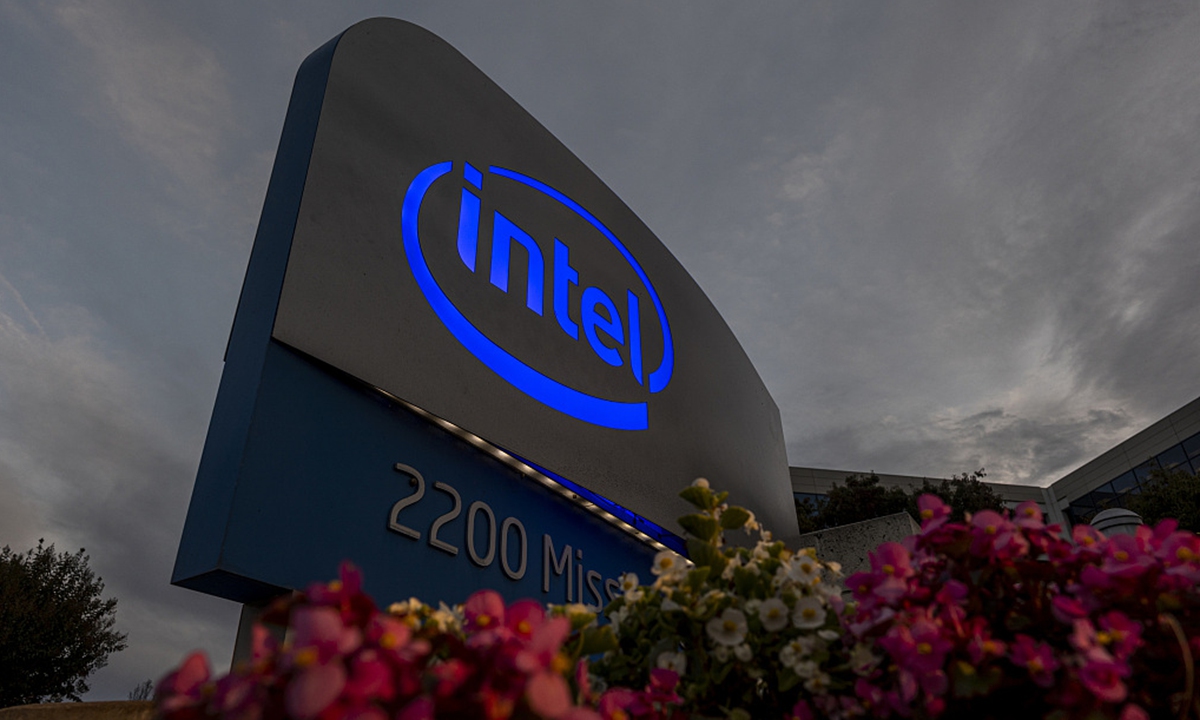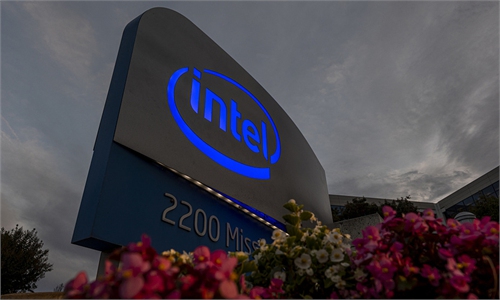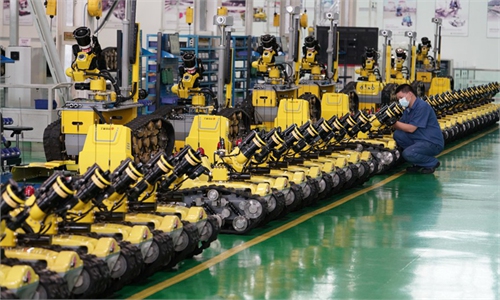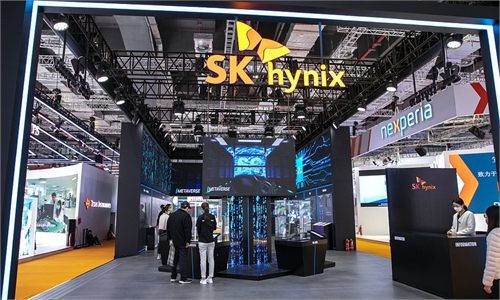Netizens welcome Intel’s ‘belated’ removal of reference to Xinjiang, demanding Walmart follow suit

Signage at the entrance to the Intel headquarters in Santa Clara, California, US, on October 19, 2021. Photo: VCG
Chinese netizens expressed their approval after US chipmaker Intel removed a reference to Northwest China's Xinjiang Uygur Autonomous Region from an annual letter to suppliers on Tuesday, saying that the correction, though delayed, sets a good example for other US firms such as Walmart to follow.Last month, Intel was slammed on Chinese social media for a company letter requiring its suppliers to not source goods or services or use labor from Xinjiang. The letter sparked widespread anger among the Chinese public and its Chinese partners, as it cited widely debunked claims of "forced labor" in Xinjiang that are pushed by US politicians.
Intel apologized to Chinese consumers, partners and the public in a statement following the backlash, but many unhappy netizens were not buying the firm's "weak" statement, saying that the apology was not sincere and that more commercial ramifications should follow.
While reviewing the letter on Tuesday, the Global Times found that the paragraph that mentioned Xinjiang was no longer included. The letter now reads that the company prohibits "any human trafficked or involuntary labor such as forced, debt bonded, prison, indentured, or slave labor throughout your extended supply chains."
The change was first reported by Reuters on Tuesday. Intel did not respond to an interview request from the Global Times as of press time.
"No matter why Intel made the correction, it sets a good example," a netizen using the handle 'Shen2018' said on Sina Weibo. Some in the online community are still angry, saying the move came too late, and calling for Chinese technology firms to build up domestic strength to replace Intel.
"Matters involving the nation's core interests' cannot be forgiven," one netizen named Yiyoujiushudian said.
Entering the Chinese market in 1985, Intel was one of the first American companies in the country following China's reform and opening-up. It has reaped huge windfalls from China's market in recent decades.
In 2020, 26 percent of Intel's revenue was generated from the Chinese mainland and Hong Kong market, and nearly 10 percent of the company's properties, factories and equipment are located in the country.
Observers said the Intel incident would be instructive to other US firms, and that a "biting the hand that feeds it" mentality will never be tolerated by the Chinese public. Netizens also blamed the US government for forcing US firms to buy into its China-smearing game.
While welcoming Intel's move, Chinese netizens urged Walmart to follow suit, as the firm's products are easily replaceable.
Sam's Club, the high-end membership store belonging to Walmart, is also facing a backlash from Chinese consumers after the firm apparently moved to rid its shelves of products sourced from Xinjiang. A good number of angered consumers have moved to cancel their memberships in several Chinese cities.
"Putting Intel aside for the moment, Walmart has to get out of China," one netizen said on Sina Weibo.



